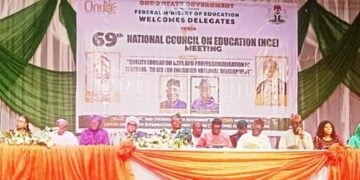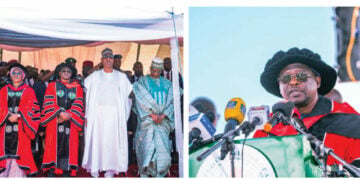Managing director of the Niger Delta Development Commission (NDDC), Dr. Samuel Ogbuku, has called on staff of the commission to always use alternative dispute resolution (ADR) mechanisms to promote transparency and due process.
Ogbuku made the call on Friday in Port Harcourt, Rivers State, while speaking at the ongoing sensitisation programme for NDDC personnel on workplace compliance with transparency and due process.
The NDDC boss, who was represented by his Chief of Staff, Rev Omeya Owoibo, mentioned that alternative dispute resolution measures help people resolve conflicts without going through long or hostile processes of carrying grudges and conflicts within the workplace.
“Over time, this approach helps shape a workplace culture where fairness, honesty, responsibility are the norm. Employees begin to trust that issues will be handled openly and fairly. This reduces gossip, backbiting fear, and facing them with teamwork and trust,” he said.
Presenting a keynote Llcture on the theme: “Promoting Transparency and Due Process in the Workplace: Deploying ADR into Building a Culture of Accountability and Integrity”, the Founder, Centre for Constitutionalism and Demilitarisation (CENCOD), Prof. Sylvester Odion-Akhaine, stated that conflict is imminent in labour relations because of antagonist interests of the workers and employers.
Odion-Akhaine, who is also a lecturer at the Department of Political Science, Lagos State University, mentioned that corporate or public organisations maintain a network of relationships that go beyond workers-employers relationships to embrace service providers entities with whom they enter into contractual agreements.
He said some of the policy frameworks on transparency in Nigeria include Nigeria Extractive Industries Transparency Initiative (NEITI), the Public Procurement and Fiscal Responsibility Act (2009), and the Freedom of Information (FOI) Act (2011).
Earlier in his presentation, the Acting Director, Dispute and Conflict Resolution at the NDDC, Ogedegbe Godwin, emphasised that the theme of the conference presents interdisciplinary and multidisciplinary problems by combining variables such as workplace, due process, transparency, accountability, and integrity, as well as alternative dispute resolution.
He said the workplace can span the worker-employer relationship, reward process, capital realisation, work engagement, productivity, and normative issues such as integrity, transparency and accountability within the system, including the mechanisms of conflict resolution, such as negotiation, conciliation, collective bargaining, mediation, arbitration and adjudication.





